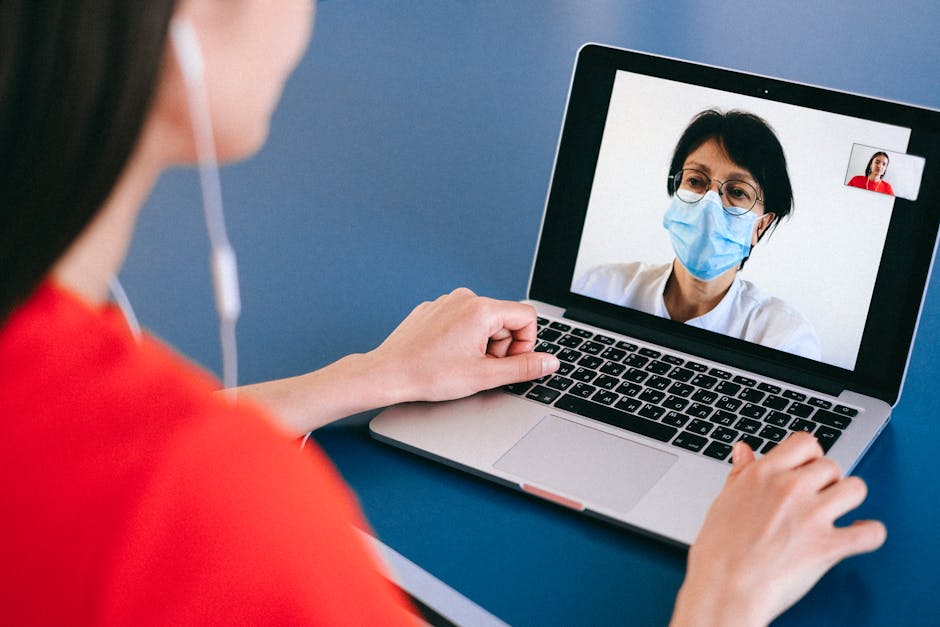**
In today’s rapidly evolving world, the intersection of technology and healthcare, often encapsulated in the term ‘헬스케어 기술’, is reshaping how we approach health and wellness. From 디지털헬스 innovations to cutting-edge 의료기술, the landscape of 건강관리 is being transformed at an unprecedented pace. In this blog post, we will delve into the future 의료 트렌드 and explore how these innovations are poised to revolutionize the way we manage health.
헬스케어 기술의 현재와 미래
The realm of 헬스케어 기술 is vast and continually expanding. Today, technology is not just an aid but a fundamental component of healthcare. From diagnostics to treatment, technology is making healthcare more precise, accessible, and efficient.
디지털헬스 혁신이란 무엇인가?
디지털헬스 refers to the use of digital technologies to improve health and healthcare services. This encompasses a wide range of tools, including health apps, wearable devices, and telemedicine platforms. These innovations are designed to empower both healthcare providers and patients, enhancing the quality of care and enabling more personalized treatment plans.
웨어러블 기술: 건강관리를 손목 위로
Wearable technology has become a cornerstone of modern health management. Devices like smartwatches and fitness trackers provide real-time data on various health metrics such as heart rate, sleep patterns, and physical activity levels. This continuous flow of data allows individuals to take proactive steps in managing their health, while healthcare providers can leverage this data to offer more tailored advice and treatments.

원격의료의 부상: 언제 어디서나 의료 서비스
Remote healthcare, or 원격의료, has gained significant traction, especially in the wake of the global pandemic. It offers a convenient and efficient way to access medical consultations and services without the need for physical visits.
원격의료의 장점은 무엇인가?
- Access to healthcare services from any location.
- Reduced need for travel, saving time and resources.
- Enhanced healthcare delivery in rural and underserved areas.
건강앱: 개인 맞춤형 건강관리의 시작
Health apps are at the forefront of personal health management. These applications offer a broad range of functionalities, from tracking daily habits to providing guided meditation sessions. Users can set goals, monitor progress, and receive personalized insights, making health management more interactive and user-friendly.
의료혁신의 새로운 경계
The future of healthcare is marked by continuous innovation. Emerging technologies such as artificial intelligence, machine learning, and big data analytics are driving unprecedented changes in healthcare delivery and outcomes.
인공지능과 머신러닝의 역할
Artificial intelligence (AI) and machine learning are revolutionizing the way healthcare data is analyzed and used. These technologies can identify patterns and insights that are beyond human capability, enabling early diagnosis, predicting treatment outcomes, and enhancing patient care processes.

빅데이터의 힘: 의료 데이터의 새로운 활용
With the advent of big data, healthcare providers can analyze vast amounts of data to uncover trends and improve patient outcomes. This data-driven approach allows for more informed decision-making, leading to more effective and efficient healthcare processes.
미래 의료 트렌드를 이끄는 요인들
Several factors are driving the future trends in healthcare, each contributing to the overall evolution of the industry.
기술적 발전이 헬스케어에 미치는 영향은?
Technological advancements are at the heart of healthcare evolution. As new technologies are developed, they offer new possibilities for improving patient care and optimizing healthcare systems.
환자 중심의 의료 패러다임 전환
There is a growing shift towards patient-centered care, focusing on providing a more personalized healthcare experience. This approach prioritizes the needs and preferences of patients, ensuring they are active participants in their health management.

결론: 헬스케어 기술과 미래 의료 트렌드의 중요성
In conclusion, 헬스케어 기술 and 미래 의료 트렌드 are redefining the boundaries of healthcare. As digital health, wearable technology, telemedicine, and other innovations continue to advance, they promise to deliver more accessible, efficient, and personalized healthcare solutions. Embracing these trends is crucial for healthcare providers, policymakers, and patients alike, as they navigate the ever-evolving landscape of modern healthcare.
What are your thoughts on the future of healthcare technology? Feel free to share your comments below or share this post with your network to spark a conversation!
